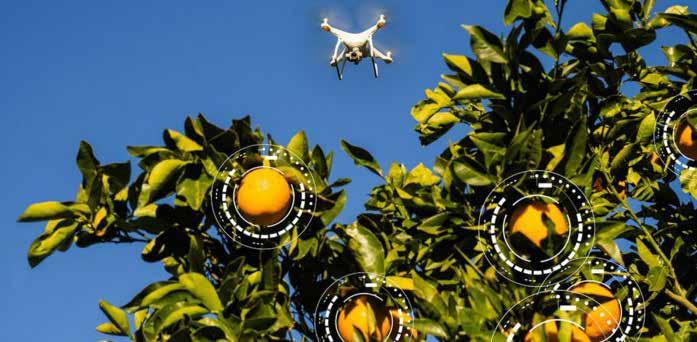INDUSTRY
ITU LAUNCHES OPEN RESEARCH GROUP ON AUTONOMOUS NETWORKS The International Telecommunications Union (ITU) in December 2020 launched a new Focus Group to support the emergence of ICT networks able to control their behaviour autonomously in the interest of efficiency. Participation in the Focus Group is open to all interested parties.
T
he ITU Focus Group on ‘autonomous networks’ will lead an exploratory ‘pre-standardisation’ study to determine how ITU standards will support the realisation of autonomous networks and their evolution in years to come. “ITU standards incorporate the latest advances in technology whilst taking account of the associated implications for business dynamics to allow industry players to advance together,” said ITU Secretary-General Houlin Zhao. “Innovation towards autonomous networks calls for an evolution that is viable both technically and economically and ITU standards have a long history of enabling such an evolution.” Networks are growing in sophistication to enable highly interactive new communication experiences and innovations in fields such as digital health and intelligent transport systems. IMT-2020/5G and future networks will be versatile all-round players able to meet the requirements of a very diverse set of ICT applications. This versatility is made possible by major advances in cloud computing and network virtualisation – the software revolution reshaping the networking business – butthis versatility also introduces significant network complexity. Artificial intelligence (AI) and machine learning are expected to play a key part in managing this complexity, especially in meeting new demands on network management and control as these demands exceed the capabilities of humans as well
as pre-defined automated processes. “As the demands on communication networks have grown through increased user subscription and new service expectations across industry sectors, network operators must find new ways to address these pressures while at the same time controlling operational cost,” said the Chair of the Focus Group, Leon Wong, Research Engineer at new ITU member Rakuten Mobile. The complexity of the latest network architectures has created the motivations for autonomous networks, but these architectures also create the conditions necessary to integrate ‘creative intelligence’ techniques into 5G and future networks. “Creative intelligence techniques can provide a new layer of abstraction, introducing an evolution mechanism as a catalyst for autonomy,” said Wong. Autonomous networks would display the ‘self’ properties: the ability to monitor, operate, recover, heal, protect, optimise and reconfigure themselves. These networks could autonomously adapt and improve management and control, but also self-evolve through online experimen-
tation to enable better compositions of controllers and controller hierarchies. The Focus Group will study the creative intelligence techniques that leverage this online experimentation, elaborating foundational concepts such as ‘exploratory evolution’, ‘emergent behaviour’, and ‘real-time responsive experimentation’. It will study the meaning and characteristics of autonomous networks, providing definitions and terminology to build clarity around the concepts underpinning creativity in autonomous networks. It will propose technical enablers for evolution in autonomous networks to support networks’ dynamic adaptation to future ICT environments and use cases. And it will demonstrate architecture concepts and develop associated guidelines to enable higher levels of autonomy through real-time responsive experimentation. The group is expected to make a key contribution to the coherence of innovation towards autonomous networks by offering an open platform for the collaboration of standardisation and open-source communities and all industry players and academia active in the field. ai
1ST QUARTER 2021 | SYNAPSE
41





























